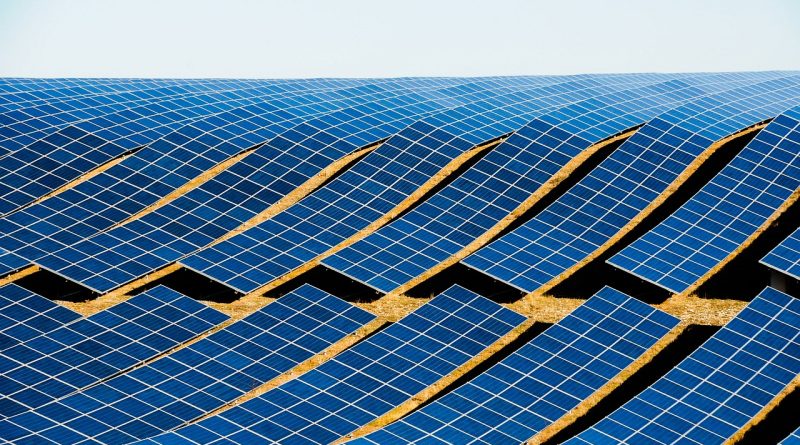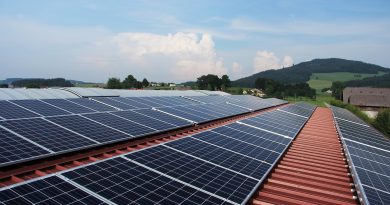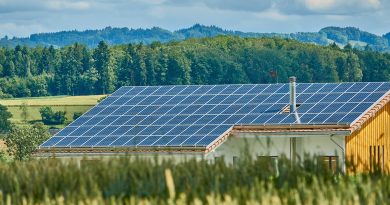Decoding the Grid-Tied Solar Electric System
Solar energy has become increasingly popular as a renewable source of power in recent years. With rising concerns about climate change and the need to reduce our dependence on fossil fuels, many individuals and businesses are turning to solar power as a clean and sustainable solution. One of the most common solar energy system setups is a grid-tied solar electric system. In this blog, we will explore what exactly a grid-tied solar electric system is, how it works, and the benefits it offers.
What is a Grid-Tied Solar Electric System?
A grid-tied solar electric system, also known as a grid-connected system, is a solar power system that is connected to the utility grid. Unlike off-grid solar systems that require batteries to store excess energy, a grid-tied system allows you to utilize the local power grid as your energy storage system.
How Does a Grid-Tied Solar Electric System Work?
A grid-tied solar electric system consists of several key components that work together to generate electricity. The main components include solar panels, an inverter, a meter, and the utility grid.
The solar panels, also referred to as photovoltaic (PV) panels, are responsible for converting sunlight into electricity. When sunlight strikes the solar panels, it excites the electrons within the panels’ cells, creating a flow of direct current (DC) electricity.
The DC electricity from the solar panels is then passed through an inverter. The purpose of the inverter is to convert the DC electricity into alternating current (AC) electricity, which is the type of electricity used in our homes and businesses. The inverter also ensures that the electricity generated matches the requirements of the utility grid.
Once the electricity is converted into AC, it is either used instantly by electrical appliances within the building or sent back to the utility grid. This is where the meter comes into play. The meter measures the total amount of electricity produced by the solar panels and determines the excess energy that is transmitted back to the grid.
Benefits of a Grid-Tied Solar Electric System
Grid-tied solar electric systems offer several benefits to both homeowners and businesses. Let’s explore some of the advantages:
1. Reduced electricity bills: By generating your own electricity, you can significantly reduce your monthly utility bills. During the day, when your solar panels are producing more electricity than your building needs, the excess energy is sent back to the grid, and you receive credits from your utility company.
2. Earn money through net metering: Net metering is a billing arrangement that allows you to earn credits for the excess electricity you generate. These credits can then be used to offset future energy consumption when your panels are not producing as much electricity. In some cases, you may even be able to sell your excess electricity back to the utility company.
3. Environmentally friendly: Solar energy is a clean and renewable source of electricity, helping to reduce your carbon footprint. By converting sunlight into electricity, you are reducing the need for traditional energy generation methods that rely on fossil fuels, such as coal or natural gas.
4. Increased property value: Installing a grid-tied solar electric system can increase the value of your property. Potential buyers are increasingly attracted to homes that have already invested in renewable energy systems, as they demonstrate lower operational costs and a commitment to sustainability.
5. Reliability: Grid-tied systems provide the advantage of being connected to the utility grid. This means that if your solar panels are not generating enough electricity, you can still rely on the grid to power your home or business. On the other hand, if your system produces more electricity than you need, you can draw additional power from the grid.
Conclusion
Unveil the potential of grid-tied solar systems with SolarClue®. As your go-to solar partner, we decode the complexities, offering insights and tailored solutions for seamless integration. Experience the benefits of reduced bills, net metering advantages, and sustainable living with our top-notch grid-tied systems. Whether you’re a homeowner or business owner, SolarClue® has the expertise to guide you. Explore our range of grid-tied solutions, backed by professional installations and proactive maintenance. Harness the power of the sun while staying connected to the grid for uninterrupted energy. Transform your space into an energy-efficient haven with SolarClue®—your trusted source for cutting-edge solar technology. Embrace sustainability without compromise. Explore SolarClue® today.
Frequently Asked Questions
A grid-tied system connects to the utility grid, allowing you to use solar power when it’s available and draw electricity from the grid when needed. SolarClue® offers grid-tied solutions for seamless integration.
Homeowners with grid-tied systems can reduce electricity bills and even earn credits by feeding excess power back to the grid. SolarClue® provides efficient grid-tied solutions tailored to residential needs.
While not essential, SolarClue® offers optional battery storage to store excess energy. This ensures power availability during grid outages and maximizes self-consumption.
SolarClue® recommends hybrid systems for off-grid needs. These systems provide independence while still allowing connection to the grid for backup.
Net metering credits homeowners for excess energy produced. SolarClue® assists customers in understanding and benefiting from net metering policies in their region.
Standard grid-tied systems shut down during outages for safety. SolarClue® offers hybrid solutions with backup capabilities, ensuring power during emergencies.
Absolutely. SolarClue® specializes in commercial grid-tied solutions, helping businesses save on energy costs and enhance their sustainability.
Grid-tied systems rely on the utility grid, while off-grid systems operate independently. SolarClue® provides both options, ensuring a solution tailored to your specific requirements.
Yes, precise installation is crucial. SolarClue® ensures safe and efficient installations, maximizing the performance of your grid-tied solar system.
Regular checks by SolarClue® professionals ensure optimal performance. Cleaning panels and monitoring system health are key to sustained efficiency.



